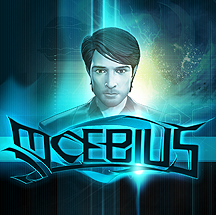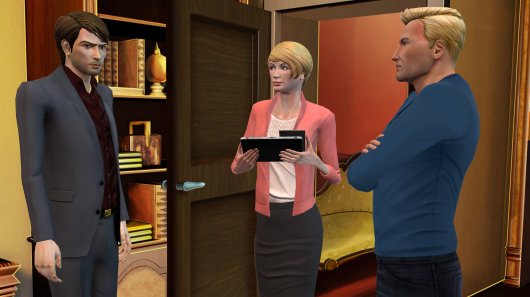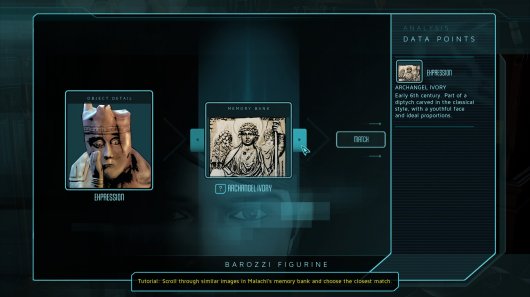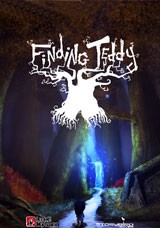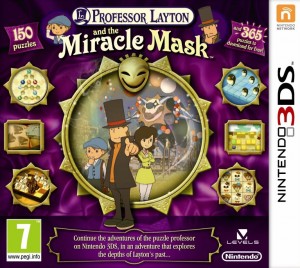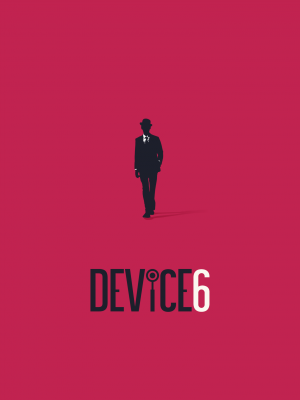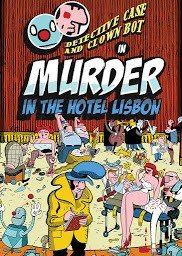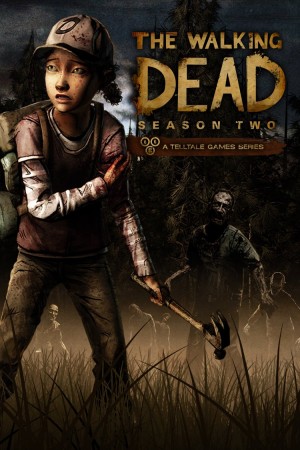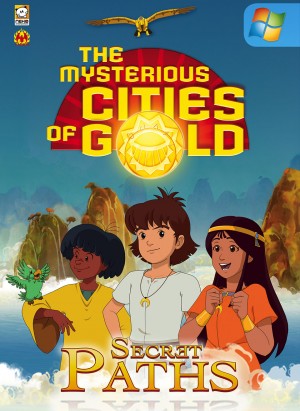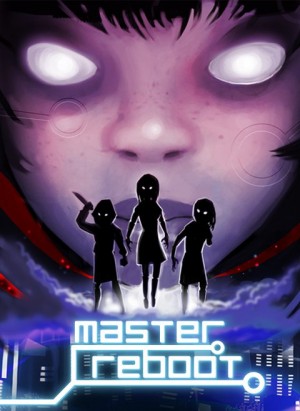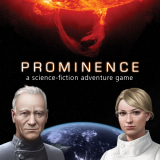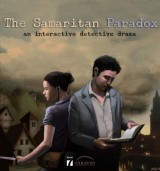Review for Moebius: Empire Rising
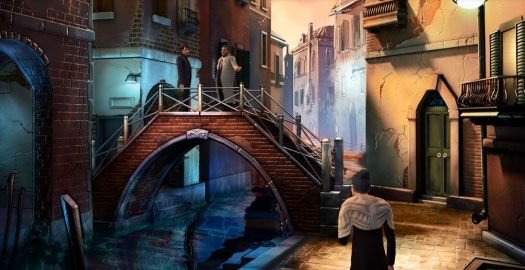
Jane Jensen’s most famous creation, Gabriel Knight, is the owner of a shop that specializes in vintage books, who finds himself dragged by fate into a centuries-old supernatural conflict that has been waged unbeknownst to most of humanity. He overcomes his reluctance and skepticism and embraces his fate as a singularly important figure in the conflict. Malachi Rector, the protagonist of Jensen’s latest release, Moebius: Empire Rising, is the owner of a shop that specializes in rare antiques, who finds himself dragged by fate into a centuries-old supernatural conflict that has been waged unbeknownst to most of humanity. He overcomes his reluctance and skepticism and embraces his fate as a singularly important figure in the conflict.
With that on the table, I trust you’ll understand why I will spend much of this review using the Gabriel Knight franchise as a reference point. Unfortunately, Moebius would be mediocre even outside of the context of its predecessors, but because it tries to hit many of the same notes and falls flat, the comparison can help illuminate why it disappoints.
Gabriel Knight is one of the legends, and for good reason. He was a fascinating character – a rogue, a charmer, an alcoholic bum, a loyal hero, a jerk with a heart of gold. He was a mess of contradictions and despite the myriad ways that could have failed, we loved him for it. Judged against his forebear, Malachi Rector comes up short on every measure. He’s not funny, he’s not charming, he’s not particularly conflicted or interesting. He’s not lovable, but he is a jerk. He is simply not fun to spend time with.
But I’m getting ahead of myself, so let’s back up: Moebius is a collaboration between Pinkerton Road, the studio formed by Jensen and composer/husband Robert Holmes, and Phoenix Online Studios, the team best known for Cognition: An Erica Reed Thriller. The story follows Malachi Rector, a famed antique dealer specializing in the appraisal of rare objects of great historical significance. Leaving his Manhattan-based shop in the capable hands of his doting assistant Gretchen, Rector spends his time hopping from country to country on jobs for wealthy patrons and fellow dealers, who are willing to pay thousands of dollars for a few minutes of his time as he identifies forgeries and rarities with unquestioned authority. He doesn’t cite his sources – he IS the source.
Soon after we meet Rector, he receives a job request from a mysterious new client, Amble Dexter of the shadowy government organization FITA. The job is strange: a young woman has been murdered in Venice, and they would like Malachi to investigate. Not the murder, mind you, but rather the life of the woman. FITA wants him to determine if her life resembles that of any prominent historical figures. Initially reluctant, Rector is eventually persuaded to go.
It’s not long before he encounters David Walker, a former US Special Forces soldier. They form a bond and Rector hires him on as a bodyguard. This relationship forms the backbone of the story. Rector and Walker uncover the truth behind FITA as they help the organization track down a very particular woman, one whose life is an uncanny match with a prominent and powerful historical figure. But who is the woman, and is her life repeating the details of Cleopatra? Anne Boleyn? Livia Drusilla? Jeanne d'Arc? And why is it so important that she be found and protected?
Like the rest of Jensen’s games, Moebius starts in a staunchly realistic world and slowly uncovers forces we can’t understand as the protagonist is plunged deeper into the supernatural. Like the Gabriel Knight series, the fantastical elements of the story are interwoven with historical fact. Much of the fun of those earlier games came from the blurred line between fact and fiction. It’s pretty clear that King Ludwig of Bavaria was not really a werewolf… but damn if it didn’t seem like he could have been.
Whereas each GK game was practically drenched in the history and culture of its setting, Moebius merely dabbles. Perhaps it is the global nature of the game – rather than keeping to a single city (such as New Orleans or Munich of GK1 and 2, respectively), Rector and Walker travel from New York to Venice to Paris and beyond, and each is just a brief sketch of the place, contained within a few screens and perhaps an Eiffel Tower in the background of one. Each location feels shallow and is quickly forgotten.
The same can be said of the science-fictional elements of the plot, which centers around the ill-defined “Moebius Theory.” The theory involves the idea of repeating patterns of history, which is an intriguing idea that goes woefully underexplored. It is never given more than a couple of paragraphs of explanation and some lip service as to its paramount importance. No evidence is ever given for its existence (surely as an expert on the theory, Dexter would be able to drum up even one such previous example of a repeated pattern), and its pillars are a bit wobbly – some people’s lives apparently seem to mirror the lives of important historical figures, but how closely and in what ways are barely explained. The theory ends up being less convincing than the writings of Nostradamus – and when it’s the crux of the entire narrative, that’s a problem.
This shallowness extends to the characters. I’ve already mentioned that Malachi is uninteresting at best and repulsive at worst. He is, supposedly, devastatingly handsome and electrifying to be around, except that he’s not. He’s a distant, elitist braggart – the fact that his coldness is due to a tragic backstory doesn’t help things because the tragedy in his past is honestly kind of hilarious. He reminded me a bit of a middle-aged Edward Cullen, another supremely uninteresting and unlikeable character who, we are told, is impossibly attractive.
Walker is shallow as well, an unflinchingly loyal puppy dog who occasionally punches people. His relationship with Rector feels forced, and while the story gives them reasons to feel a connection, their total lack of chemistry prevents those reasons from ever feeling valid. I never bought that Walker would put his life on the line for Rector, and I never for a second believed that Rector would want to keep a meathead like Walker around. The game hints at a possible homoerotic attraction between the two, which might be interesting if it was the slightest bit believable. Instead it feels like bad fan fiction. Nearly everyone else is a one-note archetype, which is a less of a problem for side characters, but disappointing nevertheless.
The game is simple in its design, with only a single method of interaction that combines ‘look’, ‘use’, ‘speak’ and so on. The interface works well enough, except for occasional freezes after clicking on an object. The puzzles themselves are generally fine as well, except that the majority of them fall into one of a couple staid patterns: someone you need something from wants something that you can find in another room, or there’s a computer/safe protected by a password/lock and you need to find the password by looking through their personal effects. These two concepts are repeated so frequently that you start to feel like YOU are stuck in a repeating Moebius loop of history.
The other type of puzzle you’ll encounter frequently are Rector’s “analysis” puzzles. Malachi is positioned as being a Sherlock Holmes analogue, able to definitively read people and objects based on minute details. This generally manifests as a puzzle wherein you select hotspots on the person or object and select the correct details from a list of possibilities. These range from noticing that a woman is “vain and concerned with her social standing above all else” based on her appearance, to matching the type of ivory used on a historical antique to images of various materials used in Egyptian artwork.
Similarly, much of the game revolves around Malachi gathering details about a person’s life to compare it to historical figures. Once enough details have been collected, it’s off to the analysis page, where you start with a range of possible historical doppelgangers and narrow down the list by examining blurbs about each of their lives. These puzzles are interesting in concept but flawed in execution. Most are obvious and easy, presenting no real challenge or intrigue. The rest are frustrating, mostly due to a complete lack of feedback. You must make your choices (sometimes up to a dozen at a time) and submit them all together – if any of them are wrong you are told that one or more are incorrect. No hints, no feedback, it’s all or nothing. This can lead to extended sessions of trial and error that sap all of the potential fun out of the exercise.
But that’s all a blast compared to the godawful maze puzzle that closes out the game, one of those that reuse background art to confuse the player. Right when the game is ostensibly trying to ratchet up the tension, it plugs in one of the most tedious and irritating mazes I’ve ever encountered. “Was I here before?” “Wait, is that a clue? No, never mind.” “How long is this going to go on?” Here’s a tip, game designers: maze puzzles were barely fun 20 years ago, and there’s no excuse for them now. It’s especially unforgivable when the transition between screens takes a few seconds, meaning you spend more of the puzzle staring at black loading screens than actually solving it. And once you’ve finally come to the end, breathing a sigh of deep relief that it’s over, you get to do the entire thing over again as a different character. Then, when you complete that, and breathe an even deeper sigh of relief… you get to do it a third time. In a row. Right during the climax. I don’t know what Jensen was thinking, and it left a very sour taste in my mouth as the game came to a close. First impressions are hugely important of course, but last impressions can be damning as well.
Graphically, Moebius leaves a decent first impression that erodes as the game wears on. Some of it is quite nice looking, but there are enough rough spots and inconsistencies that the presentation ends up feeling quite poor. The background art is almost totally static but otherwise detailed and colorful, with many screens containing an abundance of recreated antiques, artworks, and artifacts. The characters don’t fare nearly as well. The models are plastic, dead-eyed, and inconsistent. Malachi suffers the worst fate here. You might expect that the protagonist would have been given the most attention, but his body seems skewed to hideous, alien proportions. Either this was an inexplicable stylistic choice (no one else in the game looks remotely similar) or he weighs 85 pounds.
In motion, the models look even worse. Animations are stilted and awkward, whether it’s Rector walking across the room (he looks like he has a limp, which he doesn’t) or Walker getting into a slow, ungainly fistfight. When a character picks up an item or hands it over to someone else, the item often floats several inches away from their hand, and at several points throughout the game, Rector will twitch and jerk during his standard walk routine. And those are the animations that actually exist – in many cases the game will just cut away or fade to black instead of showing an action. Characters rarely walk into a new room, they simply start in position at the center of the room. Combined with the static backgrounds, this lends a sense of disconnectedness to the world – moving around the city feels like flipping through a slideshow rather than navigating a real place.
At least the game sounds good. The voice acting is serviceable. Rector sounds like a snob who can’t be bothered to deal with all the plebs he encounters on a daily basis, which is absolutely in line with his character. Walker sounds a little like Patrick Warburton’s The Tick but without the charm. Nobody stands out, good or bad. But the music? The music is great. Jensen’s husband and veteran Gabriel Knight composer Robert Holmes brings the goods, providing another memorable and fun score.
There is some good here. Moebius: Empire Rising is not a train wreck. The plot does have moments of intrigue, and even if they whiz by, it’s fun to jump around from country to country every couple of hours. Most of the puzzles are decent, even if they are never outstanding. But mostly the game is just kind of boring. There’s never a sense of danger, nor awe, nor even charm. It’s about 9 hours of doing stuff to open up a new screen to do more stuff to get some exposition and then do more stuff and then it’s over.
I’ve tried hard to divorce my opinion of this game from my admiration for and expectations of Jane Jensen, but have come to the conclusion that the context doesn’t matter. If this game had come from an unknown developer, it would receive the same scores and then be quickly forgotten. Coming from a legendary designer, that urge to dismiss it and move on is replaced by disappointment instead. We’ve seen the heights that Jensen and her team can reach – and this isn’t it.


